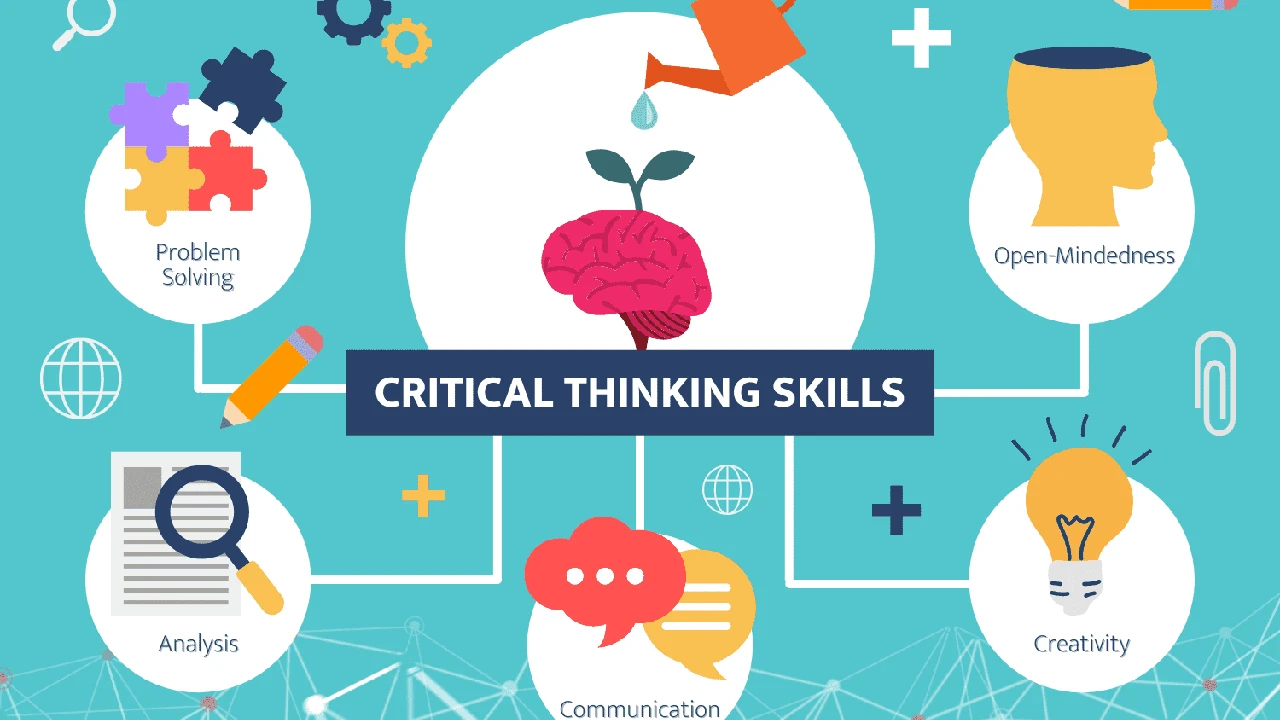5 Ways to Gain Experience Without an Internship
Boost your resume with 5 ways to gain experience without an internship. Explore alternative avenues for skill development and growth.

5 Ways to Gain Experience Without an Internship
Why Experience Matters Beyond Internships
So, you're a student, and everyone's telling you to get an internship. It's the golden ticket, right? But what if internships aren't an option for you right now? Maybe you can't find one that fits your schedule, or perhaps the competition is just too fierce. Don't sweat it! The good news is that internships aren't the only path to gaining valuable experience that employers crave. In today's dynamic job market, what truly matters is demonstrating your skills, initiative, and ability to contribute. This article will walk you through five powerful alternative avenues to build your resume, develop crucial skills, and stand out from the crowd, even without a formal internship. We'll dive deep into each method, providing actionable advice, real-world examples, and even some specific tools and platforms to help you get started. Forget the traditional path for a moment; let's explore how you can create your own opportunities and build a compelling narrative for your career.
1. Personal Projects and Portfolio Building for Skill Showcase
One of the most impactful ways to gain experience without an internship is by diving into personal projects. This isn't just about having a hobby; it's about intentionally creating something that showcases your skills, problem-solving abilities, and passion. Think of it as building your own mini-internship, where you're the boss, the developer, the designer, and the marketer. This approach is particularly effective for fields like software development, graphic design, writing, marketing, and even data analysis. The beauty of personal projects is that they allow you to work on something you're genuinely interested in, giving you the freedom to experiment, learn new technologies, and build a portfolio that truly reflects your capabilities.
Choosing Your Project and Setting Goals
The first step is to identify a project that aligns with your career aspirations and allows you to demonstrate relevant skills. Are you interested in web development? Build a personal website, a simple e-commerce store, or a task management app. Aspiring graphic designer? Create a brand identity for a fictional company, design a series of social media graphics, or rebrand an existing product. The key is to define clear goals for your project. What specific skills do you want to develop or showcase? What problem are you trying to solve? Having a clear objective will keep you focused and ensure your project has a tangible outcome.
Tools and Platforms for Project Execution
Depending on your field, there are countless tools and platforms that can help you bring your projects to life. For web development, consider:
- GitHub: Essential for version control and showcasing your code. It's free to use for public repositories.
- VS Code: A powerful and free code editor.
- Netlify/Vercel: For easily deploying web projects for free.
- Figma: For UI/UX design, offering a free tier for personal use.
For graphic design:
- Adobe Creative Cloud (Photoshop, Illustrator, InDesign): Industry standard, but comes with a subscription cost (student discounts available).
- Canva: Excellent for quick designs, social media graphics, and presentations, with a robust free version.
- GIMP/Inkscape: Free open-source alternatives to Photoshop and Illustrator.
For writing or content creation:
- WordPress.com/Blogger: Free platforms to start a blog or portfolio site.
- Google Docs/Microsoft Word: For drafting and editing.
- Grammarly: Free browser extension for grammar and spelling checks.
Showcasing Your Work and Quantifying Impact
Once your project is complete, don't let it sit in a folder on your computer! Create a portfolio website (even a simple one using platforms like Behance, Dribbble, or a personal WordPress site) to showcase your work. For each project, clearly articulate:
- The problem you addressed.
- The skills you utilized (e.g., Python, JavaScript, Photoshop, content strategy).
- The tools and technologies you used.
- The outcome or impact (e.g., 'Increased website traffic by 20%', 'Developed a fully functional e-commerce site').
Even if your project didn't have real-world users, you can still quantify your efforts. For example, 'Developed a web application with 5 key features' or 'Designed a 10-page brand guideline document.' This demonstrates initiative and a tangible output, which is exactly what employers are looking for.
2. Volunteering and Community Service for Practical Application
Volunteering is often overlooked as a powerful way to gain professional experience. It's not just about giving back; it's about applying your skills in a real-world setting, working with diverse teams, and solving actual problems for organizations. Many non-profits, community groups, and even small businesses are in desperate need of skilled volunteers, offering you a chance to take on responsibilities that might be out of reach in an entry-level paid position.
Identifying Relevant Volunteer Opportunities
Think about the skills you want to develop and the industry you're interested in. Then, look for organizations that could benefit from those skills. For example:
- Marketing/Social Media: Volunteer to manage the social media accounts for a local animal shelter or a community event.
- Web Development/IT: Offer to build or update a website for a small non-profit or a local charity.
- Event Planning: Help organize a charity run, a community festival, or a fundraising gala.
- Writing/Editing: Volunteer to write grant proposals, newsletters, or website content for an advocacy group.
- Data Entry/Admin: Assist a local historical society with digitizing records or managing their database.
Platforms for Finding Volunteer Roles
Several platforms can help you find suitable volunteer opportunities:
- VolunteerMatch: A comprehensive platform connecting volunteers with non-profits based on interests and skills.
- Idealist: Focuses on non-profit jobs, internships, and volunteer opportunities globally.
- Points of Light: A large network promoting volunteerism, with a search tool for local opportunities.
- Local Community Centers/Libraries: Often have bulletin boards or staff who can direct you to local needs.
- University Volunteer Offices: Many universities have dedicated offices that connect students with community service opportunities.
Highlighting Volunteer Experience on Your Resume
Treat your volunteer experience like any other professional role on your resume. Use action verbs and quantify your achievements. Instead of just saying 'Volunteered at a food bank,' say 'Managed inventory and distributed over 500 meals weekly to community members, improving efficiency by 15%.' This demonstrates impact and responsibility, showing employers that you can apply your skills effectively in a professional context.
3. Freelancing and Gig Work for Real Client Exposure
Freelancing and gig work offer an incredible opportunity to gain real-world experience, work with actual clients, and even earn some money while you're at it. This path allows you to develop a diverse skill set, learn about client communication, project management, and even basic business operations. It's a fantastic way to build a portfolio of paid work and demonstrate your ability to deliver results under pressure.
Identifying Your Niche and Services
What skills do you have that people or businesses would pay for? Common freelance services include:
- Writing: Blog posts, articles, website content, copywriting.
- Graphic Design: Logos, social media graphics, flyers, presentations.
- Web Development: Simple websites, landing pages, bug fixes.
- Social Media Management: Content creation, scheduling, community engagement.
- Virtual Assistant: Administrative tasks, email management, research.
- Tutoring: Academic subjects, language learning.
Start small and focus on a niche where you can deliver high-quality work. As you gain experience, you can expand your offerings.
Popular Freelance Platforms and Their Costs
There are numerous platforms designed to connect freelancers with clients. Here are a few popular ones:
- Upwork: One of the largest freelance marketplaces. You bid on projects, and clients post jobs. Upwork takes a commission (typically 5-20% depending on earnings with a client).
- Fiverr: Known for 'gigs' where freelancers offer specific services at set prices. Fiverr takes a 20% commission.
- Freelancer.com: Similar to Upwork, with bidding on projects. Commission rates vary.
- PeoplePerHour: Popular in the UK and Europe, offering both fixed-price and hourly projects. Commission rates vary.
- Toptal: For highly skilled developers, designers, and finance experts. Very selective, but high-paying.
- Local Classifieds/Social Media Groups: Don't underestimate the power of local connections. Post your services on community Facebook groups or local classifieds.
Managing Clients and Building a Reputation
Freelancing teaches you invaluable lessons about client management. Always:
- Communicate clearly: Set expectations, provide updates, and respond promptly.
- Deliver on time: Punctuality is key to building trust.
- Over-deliver (if possible): Go the extra mile to impress clients.
- Ask for testimonials/reviews: Positive feedback is crucial for attracting new clients.
Building a strong portfolio of client work, even small projects, demonstrates your ability to meet deadlines, communicate professionally, and deliver tangible results – all highly sought-after qualities in any job.
4. Online Courses and Certifications for Specialized Skills
In the digital age, learning is more accessible than ever. Online courses and certifications allow you to acquire specialized skills that are directly relevant to your desired career path. While they don't offer the same 'hands-on' experience as an internship, they provide a structured learning environment and often culminate in a verifiable credential that can significantly boost your resume.
Identifying In-Demand Skills and Relevant Courses
Research the job descriptions for roles you're interested in. What specific software, programming languages, or methodologies are frequently mentioned? Then, look for courses that teach those skills. For example, if you're aiming for a marketing role, consider courses in Google Analytics, SEO, or social media marketing. If it's data science, look for Python, R, or SQL courses.
Top Platforms for Online Learning and Certification
There are many reputable platforms offering high-quality courses, often with free audit options or financial aid:
- Coursera: Partners with universities and companies to offer courses, specializations, and professional certificates. Many courses can be audited for free, or you can pay for a certificate.
- edX: Similar to Coursera, offering university-level courses. Also has free audit options and paid verified certificates.
- Udemy: A vast marketplace of courses, often taught by industry professionals. Courses are typically purchased individually, with frequent sales. Prices range from $10-$200+.
- LinkedIn Learning: Offers a wide range of business, creative, and technology courses. Requires a subscription (often included with LinkedIn Premium).
- Google Digital Garage: Free courses on digital marketing, data, and career development, with some offering certifications.
- HubSpot Academy: Free certifications in inbound marketing, content marketing, sales, and more.
- Codecademy: Interactive coding lessons for various programming languages. Offers a free basic plan and a paid Pro plan.
Leveraging Certifications on Your Resume and LinkedIn
Once you complete a course or earn a certification, prominently display it on your resume under a 'Certifications' or 'Professional Development' section. Also, add it to your LinkedIn profile. When discussing these on your resume or in interviews, don't just list the certification; explain what you learned and how you can apply those skills. For example, 'Completed Google Analytics Certification, gaining proficiency in data analysis and reporting to inform marketing strategies.' This shows not just that you learned something, but that you understand its practical application.
5. Student Organizations and Leadership Roles for Teamwork and Management
Your university campus is a goldmine of opportunities to gain experience, especially in areas like leadership, teamwork, project management, and communication. Joining student organizations and taking on leadership roles allows you to apply theoretical knowledge in a practical setting, work with diverse groups of people, and often manage budgets, events, or projects. This experience is highly valued by employers, as it demonstrates soft skills that are crucial for workplace success.
Finding the Right Student Organizations
Look for organizations that align with your academic interests, career goals, or personal passions. Examples include:
- Academic Clubs: (e.g., Marketing Club, Engineering Society, Pre-Law Society) – often host guest speakers, workshops, and case competitions.
- Professional Fraternities/Sororities: Focus on career development and networking within specific fields.
- Service Organizations: (e.g., Habitat for Humanity, Rotaract) – provide opportunities for community engagement and project management.
- Student Government/Committees: Develop leadership, policy-making, and advocacy skills.
- Media Organizations: (e.g., student newspaper, radio station, TV station) – gain experience in writing, editing, broadcasting, and content creation.
- Cultural/Interest Groups: (e.g., debate club, dance team, gaming club) – develop teamwork, event planning, and communication skills.
Taking on Leadership and Project Roles
Don't just be a member; actively seek out opportunities to take on leadership roles or manage specific projects within the organization. This could mean:
- Being an executive board member (President, Vice President, Secretary, Treasurer).
- Leading a committee (e.g., Marketing Committee, Events Committee, Fundraising Committee).
- Organizing a specific event or initiative.
- Managing the organization's social media or website.
These roles provide tangible experiences that you can highlight on your resume. For example, 'Managed a budget of $5,000 for the annual charity gala, securing sponsorships and increasing attendance by 25%.' This demonstrates financial acumen, project management, and fundraising skills.
Translating Student Org Experience to Your Resume
When listing student organization experience on your resume, focus on the transferable skills you developed. Use action verbs and quantify your achievements whenever possible. Instead of 'Member of the Marketing Club,' write 'Developed and executed social media campaigns for club events, increasing engagement by 30% and attracting 50 new members.' This shows employers that your involvement wasn't just a pastime, but a valuable learning and growth opportunity.
Beyond the Traditional Path Your Future Awaits
Gaining experience without a formal internship is not only possible but can also make you a more well-rounded and resourceful candidate. By embracing personal projects, volunteering, freelancing, online learning, and active participation in student organizations, you're not just filling gaps on your resume; you're actively shaping your skill set, building a compelling portfolio, and demonstrating initiative that will impress any employer. Remember, the goal is to show what you can do, what you've learned, and how you can contribute. So, go out there, create your own opportunities, and build the experience that will launch your career!
:max_bytes(150000):strip_icc()/277019-baked-pork-chops-with-cream-of-mushroom-soup-DDMFS-beauty-4x3-BG-7505-5762b731cf30447d9cbbbbbf387beafa.jpg)






